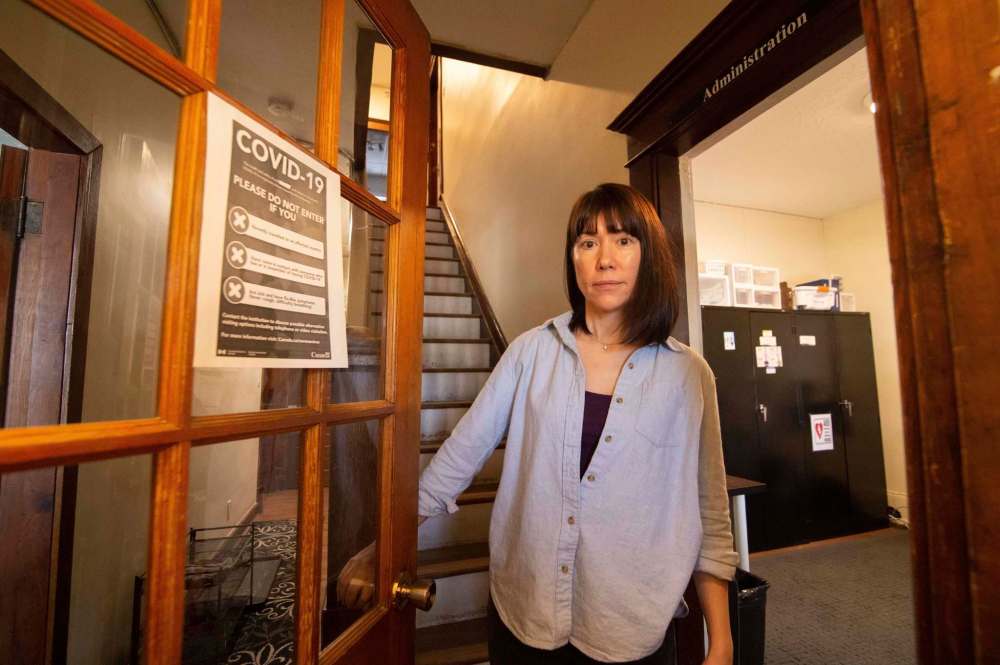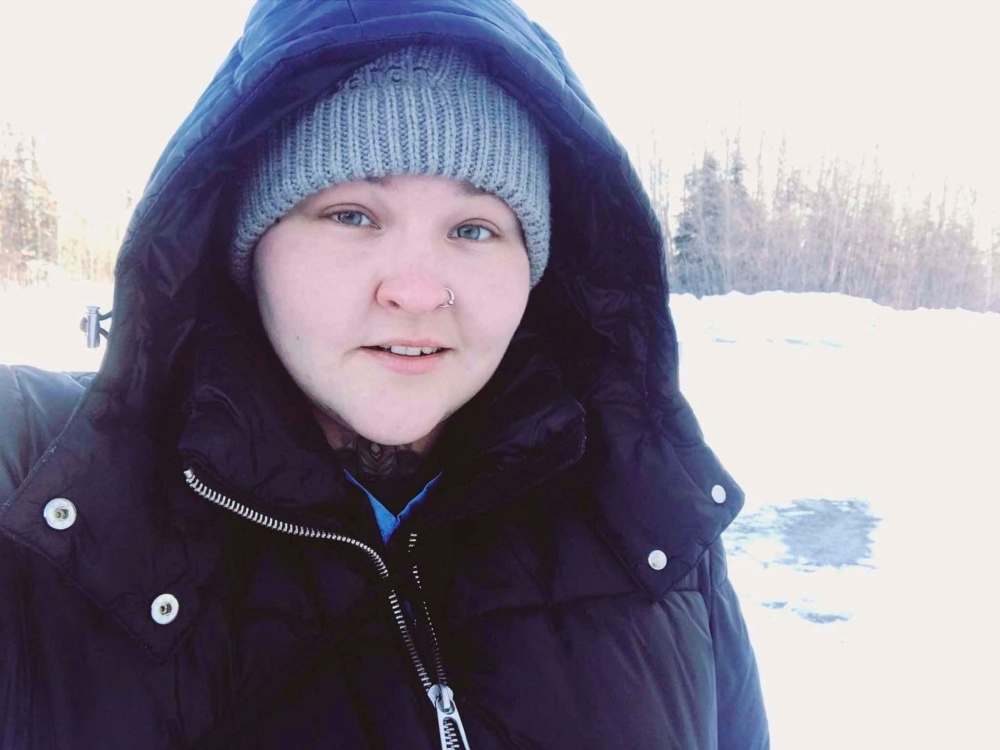Virus indirectly taking toll on people recovering from addiction Closure of treatment centres is isolating just as they need connection the most
Read this article for free:
or
Already have an account? Log in here »
To continue reading, please subscribe:
Monthly Digital Subscription
$0 for the first 4 weeks*
- Enjoy unlimited reading on winnipegfreepress.com
- Read the E-Edition, our digital replica newspaper
- Access News Break, our award-winning app
- Play interactive puzzles
*No charge for 4 weeks then price increases to the regular rate of $19.00 plus GST every four weeks. Offer available to new and qualified returning subscribers only. Cancel any time.
Monthly Digital Subscription
$4.75/week*
- Enjoy unlimited reading on winnipegfreepress.com
- Read the E-Edition, our digital replica newspaper
- Access News Break, our award-winning app
- Play interactive puzzles
*Billed as $19 plus GST every four weeks. Cancel any time.
To continue reading, please subscribe:
Add Free Press access to your Brandon Sun subscription for only an additional
$1 for the first 4 weeks*
*Your next subscription payment will increase by $1.00 and you will be charged $16.99 plus GST for four weeks. After four weeks, your payment will increase to $23.99 plus GST every four weeks.
Read unlimited articles for free today:
or
Already have an account? Log in here »
Hey there, time traveller!
This article was published 24/03/2020 (2093 days ago), so information in it may no longer be current.
Social distancing is necessary to stop the spread of the coronavirus, but it’s something that can take a toll on those battling addictions as treatment centres start to close and send clients home.
“The absence of addiction is not abstinence, it’s connection,” says River Johnson, a graduate of Winnipeg’s Tamarack Recovery Centre who is marking four years sober in August after an addiction to cocaine nearly ended his life.
Remote mental health and addiction resources
Canadian Mental Health Association Service Navigation Hub: 204-775-6442 or hub@cmhawpg.mb.ca
Crisis Response Centre (24/7): 204-940-9781
Klinic Crisis Line (24/7): 204-786-8686
Manitoba Suicide Prevention & Support Line (24/7): 1-877-435-7170 or reasontolive.ca
Addictions Foundation of Manitoba Helpline: 1-855-662-6605 or afm.mb.ca or makeconnections.ca
Alcoholics Anonymous Online Meetings: aa-intergroup.org
“People like myself manage to stay in recovery for many, many years because we stay connected to life, we stay connected to our routines… and more importantly we stay connected to people who promote that and nurture that.
“I had hit my rock bottom,” he says. “I couldn’t see the point in living anymore, so I ended up reaching out to someone I knew and it led me down this path.”
Last week, staff at Tamarack made the decision to close the residential addiction rehab facility on Balmoral Street and send home the seven clients who were receiving treatment.
“The clients that we had were a smaller group anyway at that point and they each had somewhere safe to go,” says Lisa Cowan, Tamarack’s executive director. “It’s only the in-house services that have ceased, we’re still offering phone calls, texts, emails, group chats.”
The centre will be closed for at least three weeks and its 12 staff members will remain on the payroll and in-contact with clients daily. Everyone who was in treatment was sent home with extra resources and workbooks and those clients will be first in line to return when the centre reopens.
“Nobody’s going to be denied the opportunity to get a full program,” Cowan says.

Johnson supports the centre’s decision to close, but is concerned what it will mean for those seeking treatment for the first time.
“My heart is really with people who are right now very new to recovery,” he says. “With the closing of facilities right now, it will very well have a negative… impact for people fighting for their lives right now, fighting to get out of addiction.”
Johnson lives in Thompson, Man. and credits his ongoing sobriety to practising coping skills, engaging with his Métis heritage through ceremony and attending meetings where he can connect with other people recovering from addictions.
“I myself, still actively go to 12-step programs and the threat of even those closing down are very real,” he says. “We’re able to still connect to people through technology, however it’s not quite the same as sitting in a room and having a coffee with somebody or sitting in a room and having a counselling session.”
“My heart is really with people who are right now very new to recovery.” – River Johnson
Transitioning out of a residential treatment program can be difficult, even for those who have completed Tamarack’s full 60- or 78-day program.
“It’s a different way of life when you’re getting back to life in your own home or in your family,” Cowan says. “There’s some new pressures and demands and expectations that come up just as a result of re-entering the community.”
Transitioning out of treatment during a pandemic comes with its own set of challenges.
“Isolation can be difficult for people because clients may have associated that with past using behaviour,” she says. “For some people they might use with a group and it’s a social thing and for others it’s very much that hiding and using behaviour.”

Cowan and others who work in addiction services are urging clients to reach out to their support networks and implement healthy coping strategies.
“Now more than ever it’s important for people to be taking care of their basic needs,” says Marion Cooper, executive director of the local branch of the Canadian Mental Health Association. “Getting good sleep, eating healthy, staying active to keep your immune system strong — someone struggling with addiction will be struggling with those things.”
The CMHA has suspended all of its courses and support groups for the time being, but has continued offering in-person outreach meetings for clients who need extra support. The organization has also seen an uptick in people calling and emailing its helpline in the last week.
“We are getting very busy but we’ll keep responding as we can,” Cooper says.
While anxiety is high for most of the general public right now, those with existing mental health conditions are particularly vulnerable.
“So much of our focus has shifted to the broad physical health needs of people… but we also recognize now more than ever that people’s mental health needs are significant,” she says. “With all of the messaging around social distancing, how do we also make sure that we’re not in an unintentional way creating social isolation that is really going to be concerning for people?”
There are roughly 37 Alcoholics Anonymous groups in Winnipeg and a handful of them have postponed meetings until further notice. Winnipeg AA Intergroup chairman Ian R., who asked the Free Press not to use his last name, owing to the anonymous nature of the group, doesn’t believe the cancelled meetings will have a negative effect on the fellowship.
“There used to be a thing we called nickel therapy and that’s when a phone call cost a nickel from a payphone,” Ian says. “Basically that’s the same type of therapy that’s going on right now; people are staying in touch via telephone even though they’re not having personal contact.”
It is up to individual AA groups to decide whether they will cancel meetings or employ social distancing and sanitizing recommendations. The organization also has an online meeting platform available to members around the world.
The Addictions Foundation of Manitoba, which has 28 locations province-wide, has also suspended in-person programs where social distancing recommendations can’t be met. However, the organization is continuing to offer counselling and services through its toll-free helpline and its in-house addiction treatment and assessment programs for adults and youth remain operational.
“There are lots of programs and services that are very much open for individuals who would like to talk to one of our counsellors,” says Denisa Gavan-Koop, AFM communications specialist and project lead. “We don’t want people to think we’re shutting our doors, because we’re not.”
eva.wasney@freepress.mb.ca
Twitter: @evawasney

Our newsroom depends on a growing audience of readers to power our journalism. If you are not a paid reader, please consider becoming a subscriber.
Our newsroom depends on its audience of readers to power our journalism. Thank you for your support.
History
Updated on Wednesday, March 25, 2020 9:44 AM CDT: Changes headline, corrects time reference







